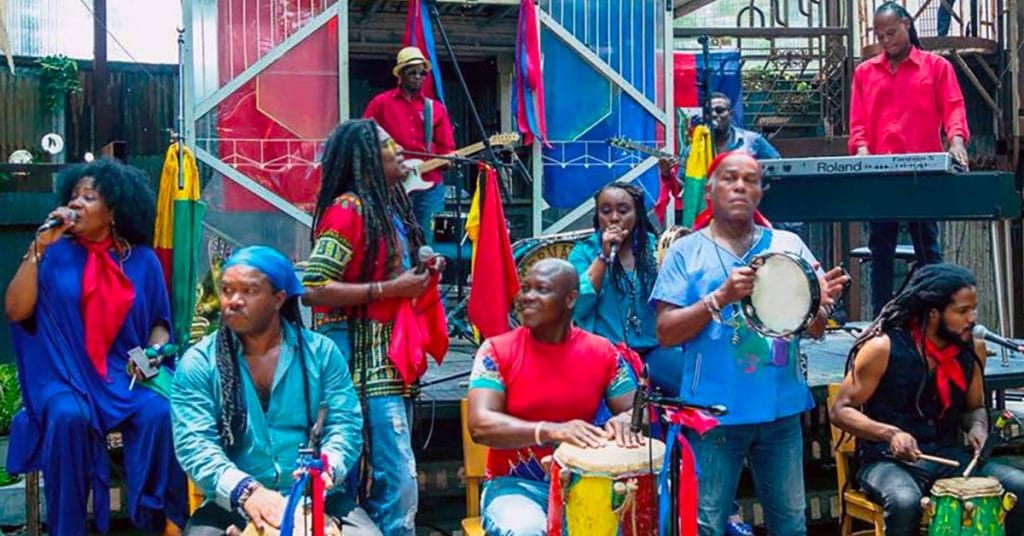Boukman Eksperyans is one of Haiti’s most famous bands. They have been mixing Haitian and Caribbean rhythms with rock and reggae since 1978.
Boukman Eksperyans plays Lincoln Center
Thursday, August 29, 2019 ~ Boukman plays a free concert at the David Rubenstein Atrium at 7:30pm. FREE
Boukman Eksperyans
Boukman Eksperyans sings in Haitian Creole with Carnival rhythms and rock guitar.
The band takes its name from Dutty Boukman, the priest who led the Vodou ceremony that sparked the Haitian Revolution. The “Experience” part was inspired by The Jimi Hendrix Experience rock band (1966-1970).
Boukman Eksperyans was founded in 1978 by the Beaubrun family.
Voudou Adjae
The first Boukman Eksperyans album in 1991 captured the spirit of the times in Haiti. It was nominated for a Grammy.
Since the Colonial Period we were taught that only White and European are good. Of course that is ridiculous and is just a method of control. The Haitian Revolution 1791-1804 was an important step in freedom for all peoples. It was sparked by a Vodou ceremony.
In the 1960s the Civil Rights Movement and the Black is Beautiful cultural movement started in the United States. Over time the idea of pride in who you are spread around the world and we began to reclaim our heritage.
Haiti suffered the brutal dictatorship of Papa Doc and then his son Baby Doc from 1957 until 1986. Under extreme oppression, you stay focused on just surviving another day. Free expression is prohibited. When a people becomes free we take a deep collective breath and start asking ourselves who we are.
There is a return to roots and Boukman Eksperyans was part of this renaissance in Haitian roots culture of the 1990s.
Mizik Rasin
“Root Music” is the Haitian Creole name for the music that blends Haitian Vodou folk with rock and roll. It came up in the 1970s.
Around the same time, a similar thing was happening in Cuba. Cuban rumba, son and salsa evolved into timba which reemphasized African rhythms and brought rock influences into the music.
Vodou
It should be noted that Vodou is one of the great African syncretic religions in the Americas.
Slavers did not allow us to preserve our culture and practice our own religion. We did both by syncretizing (blending and hiding) our religious practices inside the veneration of saints in the Roman Catholic religion that was imposed on us.
Before and especially after the Haitian Revolution, Vodou was demonized by slave owners and Catholic priests, and in Hollywood movies, but there is nothing scary about it. It’s a religion like every other. Slavers feared Vodou and encouraged that fear because they feared more uprisings.
When governments fail, the people band together to survive. Vodou is part of that. It brings people together to solve our problems and work on creating a better future for our children.

